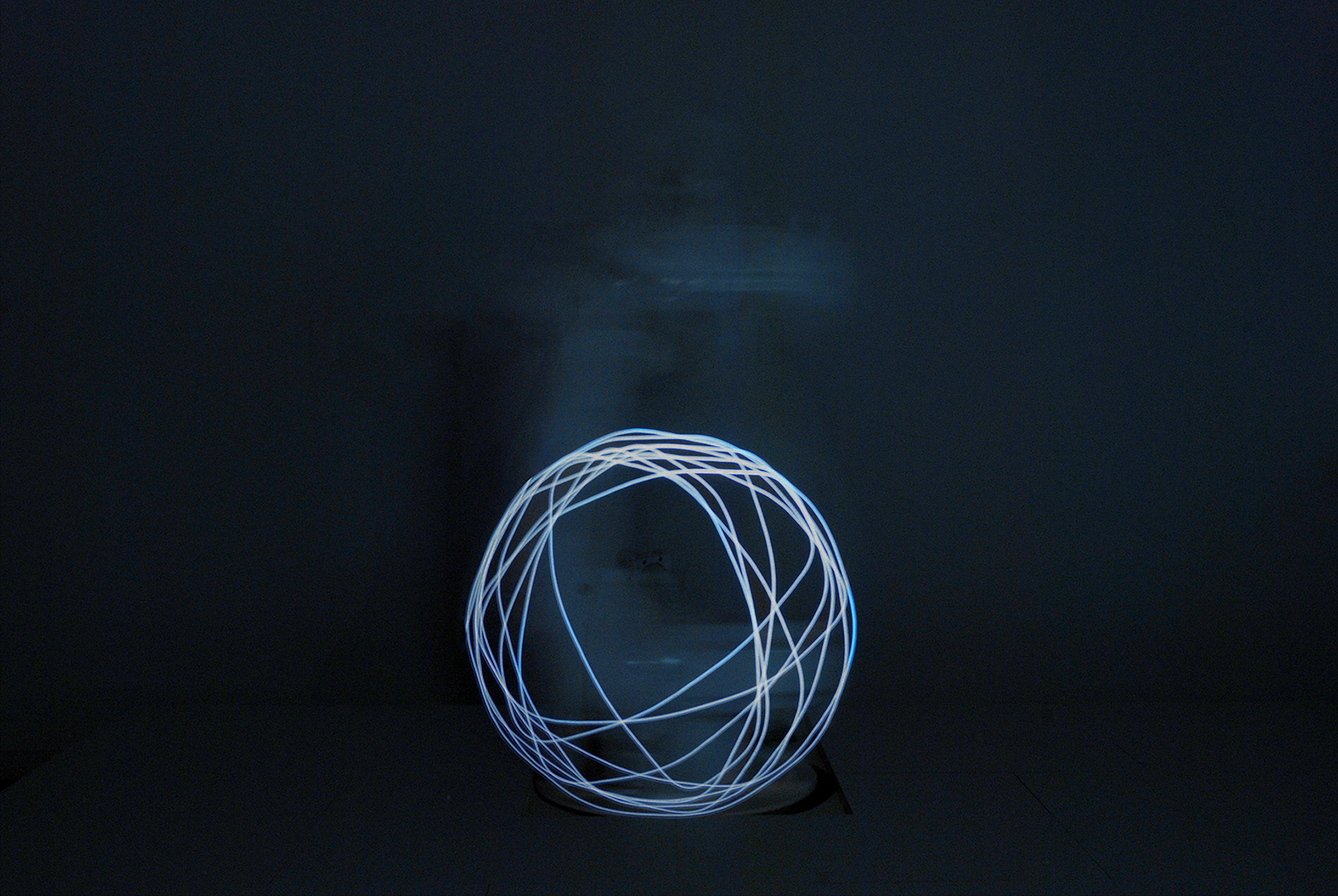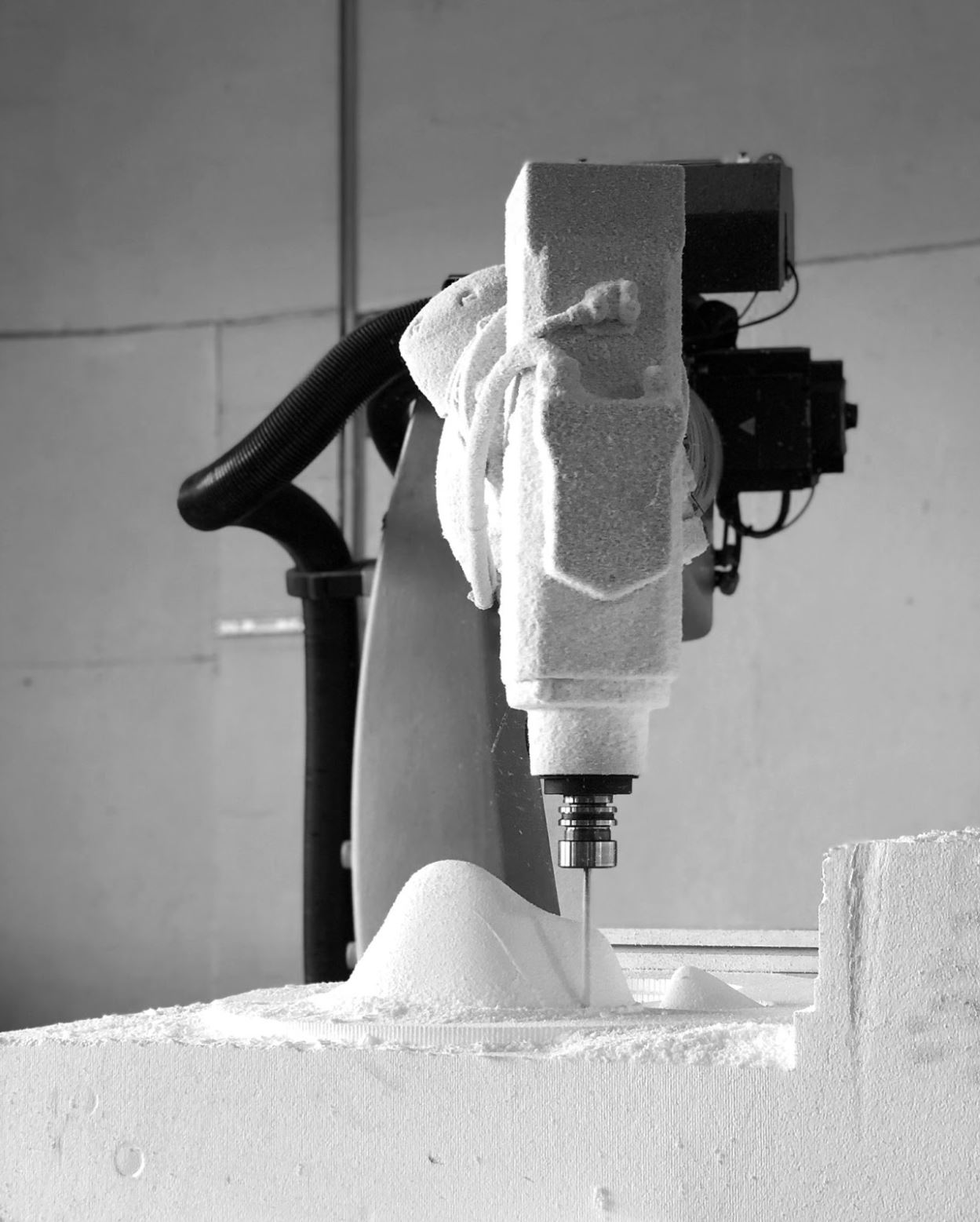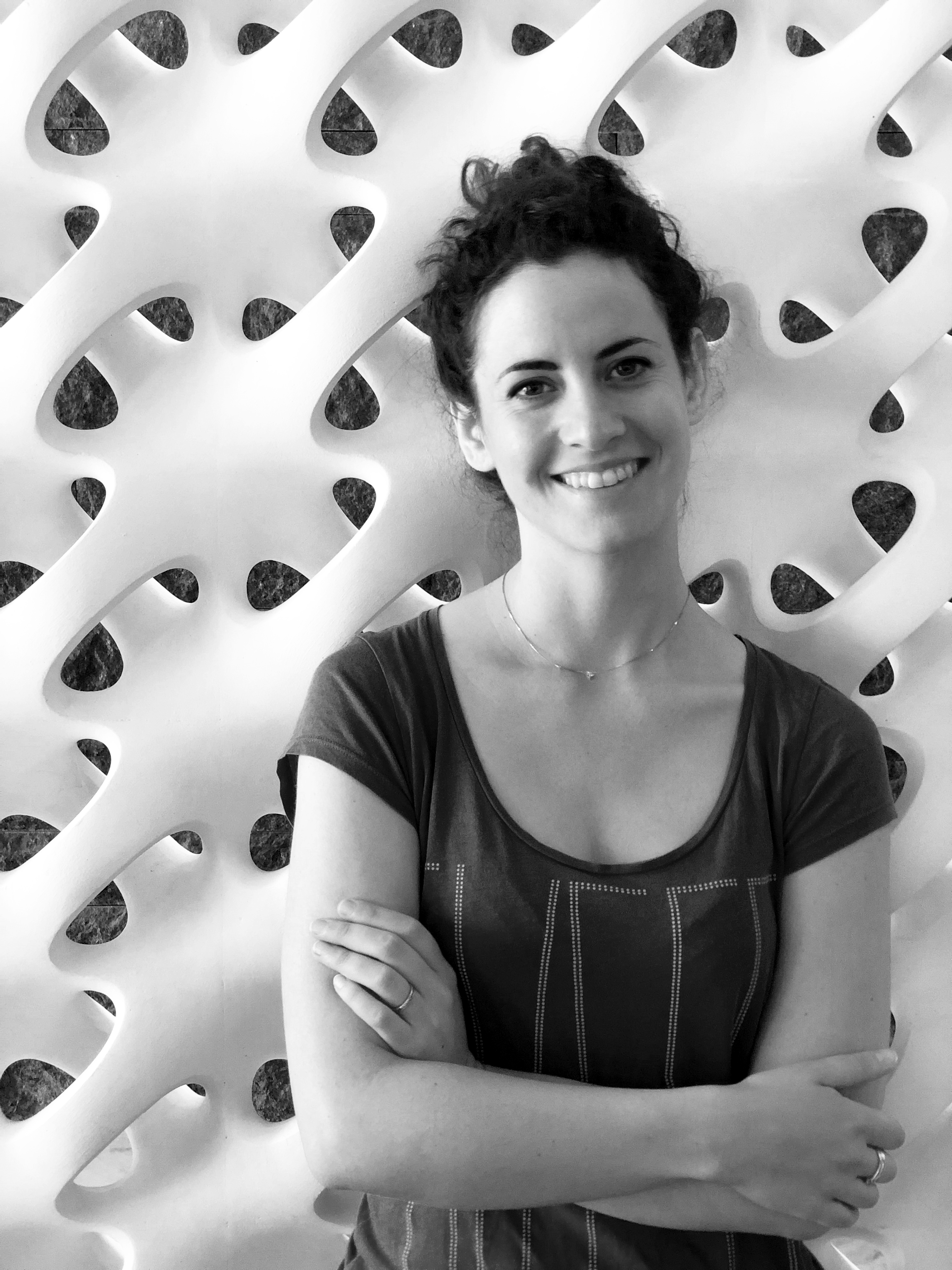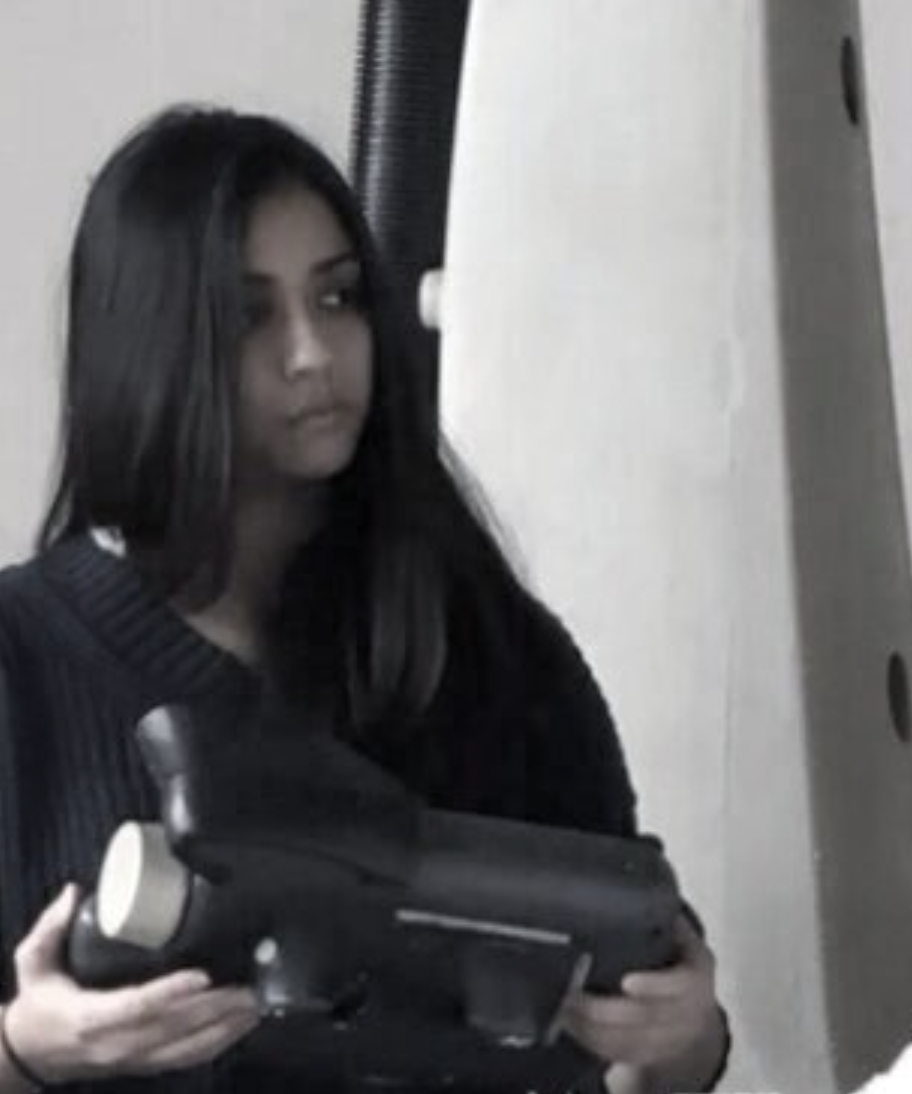Fabrication | Online Workshop | English | Europe-Mideast-Africa
Description:
Robo-augmented Workflows aims at introducing emergent digital technologies and understanding tools with a 6 axis robotic arm. With the help of Bianco, an industrial robot based in Detroit dismissed from the automotive industry, the participants will practice a “fabrication-aware thought”, imagining that in the future of construction, robots will take part in the downstream processes of making architecture.
The ambition of the workshop is to explore various design methodologies that combine analog and digital ways of making. Participants will design geometries and use Rhino-Grasshopper along with KUKU|prc to program robotic toolpaths. This approach involves understanding fabrication processes native to automotive/manufacturing industries and learning how to turn geometry into motion by creating a relationship between time and space.
Schools of architecture are struggling with a problem during the pandemic. How do we offer access to fabrication in a safe and equitable manner? Starting with this very hypothesis, the workshop opens with a larger pedagogical question.
In addition to this, the workshop provides interludes into contemporary research practices that position an architect as both, the designer and the maker. The sessions largely focus on pushing computational-thinking design, dwell around potentials-limitations of digital fabrication and engage in discussions of constructive strategies. The workshop will conclude with the students using simulation-based assignments to project and propose various systems of architectural production with a unique set of new possibilities in design.


Key Words:
Robotic Fabrication,Generative Design,Mass Customization,Virtual Simulation
Required Skills:
Basic knowledge of Rhinoceros v.6 and Grasshopper
Required Software:
Rhinoceros (v.6 and later), Grasshopper + KukaPrc (it will provided by the instructors), and Anemone (optional)
Required Hardware:
Laptop/Pc
Maximum number of participating students:
14
The ambition of the workshop is to explore various design methodologies that combine analog and digital ways of making. Participants will design geometries and use Rhino-Grasshopper along with KUKU|prc to program robotic toolpaths. This approach involves understanding fabrication processes native to automotive/manufacturing industries and learning how to turn geometry into motion by creating a relationship between time and space.
Schools of architecture are struggling with a problem during the pandemic. How do we offer access to fabrication in a safe and equitable manner? Starting with this very hypothesis, the workshop opens with a larger pedagogical question.
In addition to this, the workshop provides interludes into contemporary research practices that position an architect as both, the designer and the maker. The sessions largely focus on pushing computational-thinking design, dwell around potentials-limitations of digital fabrication and engage in discussions of constructive strategies. The workshop will conclude with the students using simulation-based assignments to project and propose various systems of architectural production with a unique set of new possibilities in design.


Schedule:
Jun 27 - Jul 2
-
Day 1 / Jun 27
-
Day 2 / Jun 28
-
Day 3 / Jun 29
-
Day 4 / Jun 30
-
Day 5 / Jul 1
-
Day 6 / Jul 2
Instructors:
-
 Sara Codarin Lawrence Technological University, College of Architecture and Design,Adjunct FacultySara Codarin is a techno-optimist and she loves robots. She completed her Ph.D. at the Department of Architecture of the University of Ferrara in Italy where her doctoral research investigated robotic manufacturing for the conservation of Cultural Heritage. She looked at innovative methods to update design workflows with a technology-driven approach. She spent an academic year as a visiting scholar at the College of Architecture and Design of Lawrence Technological University to develop an experimental application of her research. Her experiments simulated on-site robo-fabrication processes to produce customized units for the recovery of damaged buildings. Her work is tied to broader economic, technological, and social changes that will affect the building culture in the next future.
Sara Codarin Lawrence Technological University, College of Architecture and Design,Adjunct FacultySara Codarin is a techno-optimist and she loves robots. She completed her Ph.D. at the Department of Architecture of the University of Ferrara in Italy where her doctoral research investigated robotic manufacturing for the conservation of Cultural Heritage. She looked at innovative methods to update design workflows with a technology-driven approach. She spent an academic year as a visiting scholar at the College of Architecture and Design of Lawrence Technological University to develop an experimental application of her research. Her experiments simulated on-site robo-fabrication processes to produce customized units for the recovery of damaged buildings. Her work is tied to broader economic, technological, and social changes that will affect the building culture in the next future. -
 Misri Patel University of Michigan,Research Lead - CDAMisri Patel is an architect and researcher from Mumbai, India. Currently, she is a Research Lead at the University of Michigan, Taubman College with Catie Newell and Wes McGee. She recently held a robotic research-teaching position and served as the 2019-2020 Ballard Fellow at Lawrence Technological University. She completed graduate studies at the University of Michigan in Master of Science in Digital Material Technology during which she assisted Professor Sean Ahlquist and received the 2019 MS DMT Award. Prior to graduate school, she earned her Bachelor of Architecture from NMIMS Balwant Sheth School of Architecture and honed her skills at Sameep Padora and Associates, Mumbai and LOT-EK, New York. Her work has been published in Unfolded, Portico, ideas forward-24H and ACADIA Conference Proceedings and exhibited at the Venice Biennale, the University of Texas at Austin, and Center for Architecture, New York.
Misri Patel University of Michigan,Research Lead - CDAMisri Patel is an architect and researcher from Mumbai, India. Currently, she is a Research Lead at the University of Michigan, Taubman College with Catie Newell and Wes McGee. She recently held a robotic research-teaching position and served as the 2019-2020 Ballard Fellow at Lawrence Technological University. She completed graduate studies at the University of Michigan in Master of Science in Digital Material Technology during which she assisted Professor Sean Ahlquist and received the 2019 MS DMT Award. Prior to graduate school, she earned her Bachelor of Architecture from NMIMS Balwant Sheth School of Architecture and honed her skills at Sameep Padora and Associates, Mumbai and LOT-EK, New York. Her work has been published in Unfolded, Portico, ideas forward-24H and ACADIA Conference Proceedings and exhibited at the Venice Biennale, the University of Texas at Austin, and Center for Architecture, New York.